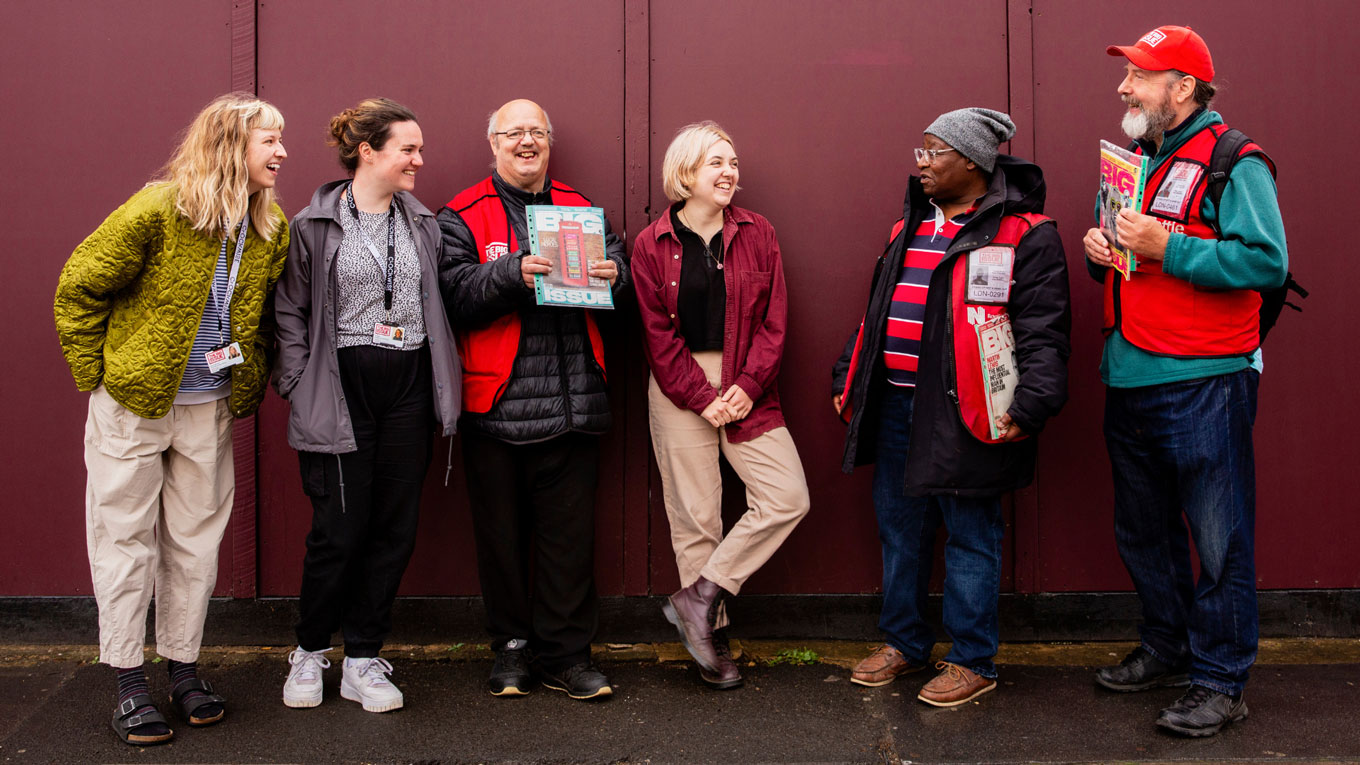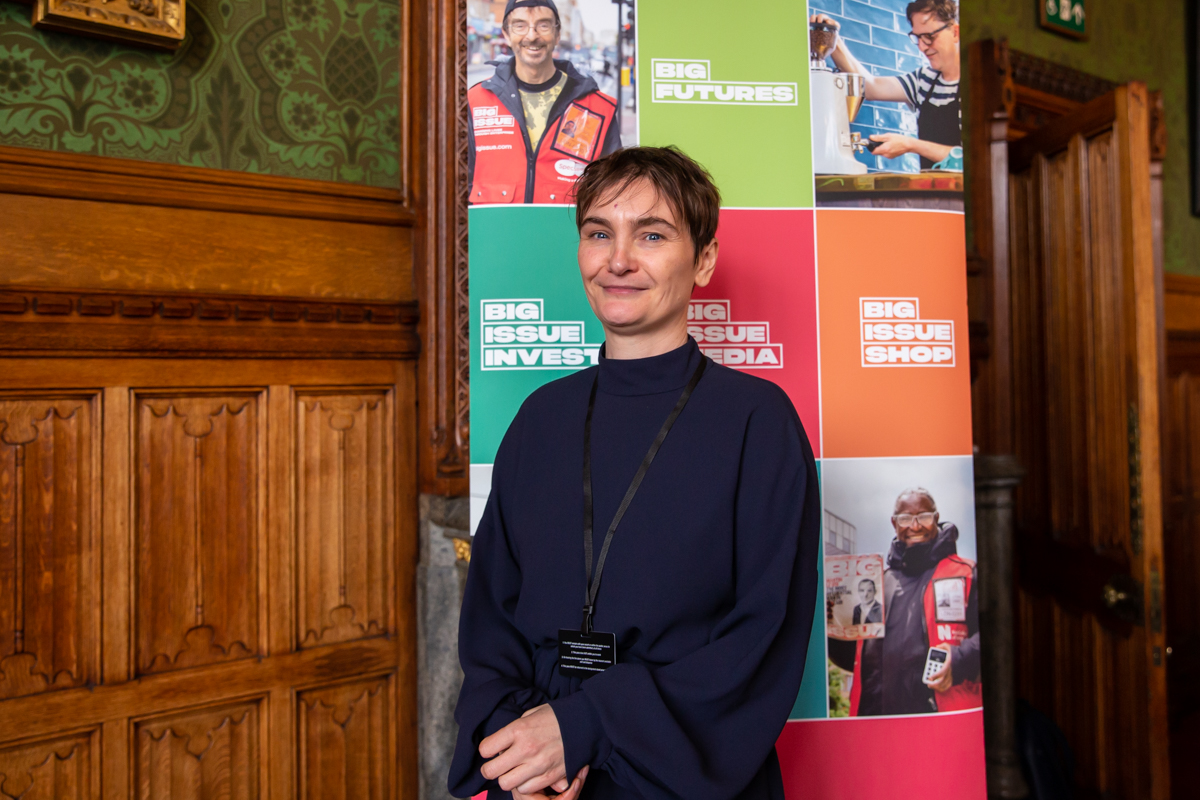Supporting Big Issue Vendors

How we support Big Issue vendors
Our regional support teams, based across the UK, work with people affected by poverty every day, in our offices and on the streets.
Our team is highly skilled. We work with individuals with complex needs and do whatever it takes to help people earn a living and build a better future for themselves. We offer four key services to support Big Issue vendors:
1. Earning an income
Big Issue Vendors are able to earn an income by selling Big Issue magazine. Our Support Service team set vendors up with selling locations, provide sales support and arrange for cashless payment options.
We support every vendor to run their own mini business, buying and selling the Big Issue magazine each week.
We sell the Big Issue magazine to vendors at £2 and vendors sell the magazine on to customers for £4, keeping the difference. Vendors can earn an income whilst gaining valuable social and transferable business and financial skills.
Working as a vendor is fully flexible, so vendors can sell on their pitches any time of day, working their own hours, as their own boss to earn as much as they can.
2. Securing the basics
As soon as an individual signs up to sell Big Issue or to participate in one of our other enterprises they can access support across six Hand Up pathways:
- Housing: Access to and maintenance of secure, affordable, and stable accommodation
- Wellbeing: Access to adequate food, weather appropriate clothing, home energy, toiletries, and other essentials
- Health: Access to the right care and treatment for physical and mental health needs, including addiction support needs, and access to resources to sustain health
- Money: Support with budgeting, saving and connection to debt support, financial advice and benefits services
- Digital: Access and capability to use the internet to reach essential services, cost efficient products and to undertake financial transactions
- Citizenship: Access to enablers for active citizenship including gaining official ID, developing language skills, and establishing social networks
These pathways are designed to help vendors find their feet and make the most of the financial independence they begin to gain when they sell the magazine, accelerating their journey out of poverty, addressing the toughest challenges like homelessness quickly and helping to prevent problems getting worse by taking action early.
3. New Future pathways
If a vendor decides they want to move from selling the magazine, we’ll be by their side to support them with their next steps through our New Futures pathways:
- Education and training: access to informal, community-based learning in universal skills including numeracy, literacy, digital literacy, ESOL, and civic skills, as well as connection to training and adult education within and beyond the Big Issue
- Volunteering: access to community-based volunteering opportunities to develop skills, confidence and networks
- Involvement: access to opportunities to influence social change within and beyond Big Issue
- Employment: pre and in-work support for disadvantaged individuals entering the workplace for the first time or after time away from work. We support individuals accessing Big Issue enterprises and those accessing local employment opportunities
4. Hand Up Fund
We offer a small grant scheme for individuals accessing our services. The scheme contributes resources towards the achievement of a personal goal, such as taking part in training or gaining a qualification, or towards putting in place the foundations for change. For example, obtaining official ID or setting up a first home. The grants are partial and individuals accessing them contribute towards the total cost required. This contribution is determined based on total cost, urgency, and the income of the individual. Our grants catalyse the ability for individuals to move forward.

Meet Catherine, Managing Director of the Big Issue Support Service
“We know that there are 3.8 million people in the UK who are living in deprivation, and our services are more in demand that ever before. The Big Issue has a unique offer for people to immediately start earning a legitimate income: last year we supported almost 4000 people to earn a total of £4million pounds. Our vendors buy the magazine on a weekly basis and through this regular contact with our staff we are able to build trust and confidence, and offer the personalised support around health and wellbeing, financial and digital literacy, housing and employability that people need in order to create stability and to progress away from poverty.”
